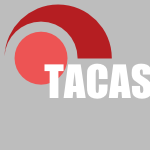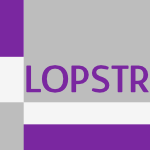84 papers:
 ICLP-2015-GavanelliLRBZC #abduction #datalog #framework #ontology
ICLP-2015-GavanelliLRBZC #abduction #datalog #framework #ontology- An Abductive Framework for Datalog± Ontologies (MG, EL, FR, EB, RZ, GC).
 SAS-2014-BrotherstonG #abduction #safety #termination
SAS-2014-BrotherstonG #abduction #safety #termination- Cyclic Abduction of Inductively Defined Safety and Termination Preconditions (JB, NG), pp. 68–84.
 KR-2014-PereiraDH #abduction #approach #bias #reasoning
KR-2014-PereiraDH #abduction #approach #bias #reasoning- An Abductive Reasoning Approach to the Belief Bias Effect (LMP, EAD, SH).
 CAV-2014-LeGQC #analysis #higher-order
CAV-2014-LeGQC #analysis #higher-order- Shape Analysis via Second-Order Bi-Abduction (QLL, CG, SQ, WNC), pp. 52–68.
 ICLP-J-2014-CaropreseTTZ #abduction
ICLP-J-2014-CaropreseTTZ #abduction- A Measure of Arbitrariness in Abductive Explanations (LC, IT, MT, EZ), pp. 665–679.
 ICLP-J-2014-PereiraDH #abduction #reasoning
ICLP-J-2014-PereiraDH #abduction #reasoning- Contextual Abductive Reasoning with Side-Effects (LMP, EAD, SH), pp. 633–648.
 TACAS-2013-LiDDMS #abduction #composition #proving #synthesis
TACAS-2013-LiDDMS #abduction #composition #proving #synthesis- Synthesis of Circular Compositional Program Proofs via Abduction (BL, ID, TD, KLM, MS), pp. 370–384.
 KEOD-2013-AlirezaieL #abduction #automation #data type #reasoning #using
KEOD-2013-AlirezaieL #abduction #automation #data type #reasoning #using- Automatic Annotation of Sensor Data Streams using Abductive Reasoning (MA, AL), pp. 345–354.
 OOPSLA-2013-DilligDLM #abduction #generative #induction #invariant
OOPSLA-2013-DilligDLM #abduction #generative #induction #invariant- Inductive invariant generation via abductive inference (ID, TD, BL, KLM), pp. 443–456.
 CAV-2013-DilligD #abduction #named
CAV-2013-DilligD #abduction #named- Explain: A Tool for Performing Abductive Inference (ID, TD), pp. 684–689.
 CSL-2013-SchmidtW #abduction #complexity #constraints #similarity
CSL-2013-SchmidtW #abduction #complexity #constraints #similarity- The Complexity of Abduction for Equality Constraint Languages (JS, MW), pp. 615–633.
 PLDI-2012-DilligDA #abduction #automation #fault #using
PLDI-2012-DilligDA #abduction #automation #fault #using- Automated error diagnosis using abductive inference (ID, TD, AA), pp. 181–192.
 POPL-2012-BotincanDJ #abduction
POPL-2012-BotincanDJ #abduction- Resource-sensitive synchronization inference by abduction (MB, MD, SJ), pp. 309–322.
 SAS-2011-GorogiannisKO #abduction #abstraction #complexity
SAS-2011-GorogiannisKO #abduction #abstraction #complexity- The Complexity of Abduction for Separated Heap Abstractions (NG, MIK, PWO), pp. 25–42.
 ICLP-2011-MaRBL #abduction #multi #reasoning
ICLP-2011-MaRBL #abduction #multi #reasoning- Multi-agent Confidential Abductive Reasoning (JM, AR, KB, EL), pp. 175–186.
 ICLP-2011-MolinaroSS #abduction #logic #probability
ICLP-2011-MolinaroSS #abduction #logic #probability- Abduction in Annotated Probabilistic Temporal Logic (CM, AS, VSS), pp. 240–250.
 FASE-2010-DistefanoF #detection #java #memory management
FASE-2010-DistefanoF #detection #java #memory management- Memory Leaks Detection in Java by Bi-abductive Inference (DD, IF), pp. 278–292.
 ICPR-2010-LawalAM #abduction #classification #network #recognition #using
ICPR-2010-LawalAM #abduction #classification #network #recognition #using- Recognition of Handwritten Arabic (Indian) Numerals Using Freeman’s Chain Codes and Abductive Network Classifiers (IAL, REAA, SAM), pp. 1884–1887.
 KR-2010-CreignouST #abduction #complexity #set #strict
KR-2010-CreignouST #abduction #complexity #set #strict- Complexity of Propositional Abduction for Restricted Sets of Boolean Functions (NC, JS, MT).
 CSL-2010-OHearn #abduction #deduction #induction #reasoning
CSL-2010-OHearn #abduction #deduction #induction #reasoning- Abductive, Inductive and Deductive Reasoning about Resources (PWO), pp. 49–50.
 ICLP-2010-AlbertiGL10 #abduction #constraints #proving #runtime
ICLP-2010-AlbertiGL10 #abduction #constraints #proving #runtime- Runtime Addition of Integrity Constraints in an Abductive Proof Procedure (MA, MG, EL), pp. 4–13.
 ICLP-2010-CorapiRL10 #abduction #induction #logic programming
ICLP-2010-CorapiRL10 #abduction #induction #logic programming- Inductive Logic Programming as Abductive Search (DC, AR, EL), pp. 54–63.
 ICLP-2010-SimariS10 #abduction #logic programming #probability #source code
ICLP-2010-SimariS10 #abduction #logic programming #probability #source code- Abductive Inference in Probabilistic Logic Programs (GIS, VSS), pp. 192–201.
 ICMT-2009-HettelLR #abduction #approach #towards
ICMT-2009-HettelLR #abduction #approach #towards- Towards Model Round-Trip Engineering: An Abductive Approach (TH, ML, KR), pp. 100–115.
 PADL-2009-PereiraDL #abduction #modelling #on the
PADL-2009-PereiraDL #abduction #modelling #on the- On Preferring and Inspecting Abductive Models (LMP, PD, GL), pp. 1–15.
 POPL-2009-CalcagnoDOY #analysis #composition
POPL-2009-CalcagnoDOY #analysis #composition- Compositional shape analysis by means of bi-abduction (CC, DD, PWO, HY), pp. 289–300.
 ICLP-2009-GavanelliAL #abduction #constraints #integration #optimisation #reasoning
ICLP-2009-GavanelliAL #abduction #constraints #integration #optimisation #reasoning- Integration of Abductive Reasoning and Constraint Optimization in SCIFF (MG, MA, EL), pp. 387–401.
 KR-2008-Bienvenu #abduction #complexity #lightweight #logic #product line
KR-2008-Bienvenu #abduction #complexity #lightweight #logic #product line- Complexity of Abduction in the EL Family of Lightweight Description Logics (MB), pp. 220–230.
 PADL-2008-BeckerN #abduction #declarative #policy
PADL-2008-BeckerN #abduction #declarative #policy- The Role of Abduction in Declarative Authorization Policies (MYB, SN), pp. 84–99.
 ICLP-2007-MancarellaTT #abduction #logic programming #verification #web
ICLP-2007-MancarellaTT #abduction #logic programming #verification #web- Web Sites Verification: An Abductive Logic Programming Tool (PM, GT, FT), pp. 434–435.
 KR-2006-DuboisGK #abduction #probability
KR-2006-DuboisGK #abduction #probability- Probabilistic Abduction without Priors (DD, AG, GKI), pp. 420–430.
 KR-2006-RandellW #abduction #visual notation
KR-2006-RandellW #abduction #visual notation- Abductive Visual Perception with Feature Clouds (DAR, MW), pp. 352–361.
 PPDP-2006-AlbertiGLCMM #abduction #framework #verification #web #web service
PPDP-2006-AlbertiGLCMM #abduction #framework #verification #web #web service- An abductive framework for a-priori verification of web services (MA, MG, EL, FC, PM, MM), pp. 39–50.
 ICLP-2005-ChristiansenD #abduction #logic programming #named #programming language #prolog
ICLP-2005-ChristiansenD #abduction #logic programming #named #programming language #prolog- HYPROLOG: A New Logic Programming Language with Assumptions and Abduction (HC, VD), pp. 159–173.
 ICLP-2005-Maher #abduction #constraints #linear
ICLP-2005-Maher #abduction #constraints #linear- Abduction of Linear Arithmetic Constraints (MJM), pp. 174–188.
 LICS-2005-Maher #abduction #constraints
LICS-2005-Maher #abduction #constraints- Herbrand Constraint Abduction (MJM), pp. 397–406.
 KR-2004-Provan #abduction #complexity #modelling
KR-2004-Provan #abduction #complexity #modelling- Inferential Complexity Control for Model-Based Abduction (GMP), pp. 415–426.
 ICEIS-v2-2003-CamposGM #abduction #network #probability #using
ICEIS-v2-2003-CamposGM #abduction #network #probability #using- Partial Abductive Inference in Bayesian Networks By Using Probability Trees (LMdC, JAG, SM), pp. 83–91.
 CSL-2003-EiterM #abduction #generative #query
CSL-2003-EiterM #abduction #generative #query- Generating All Abductive Explanations for Queries on Propositional Horn Theories (TE, KM), pp. 197–211.
 ICLP-2002-RussoMNK #abduction #approach #requirements #specification
ICLP-2002-RussoMNK #abduction #approach #requirements #specification- An Abductive Approach for Analysing Event-Based Requirements Specifications (AR, RM, BN, JK), pp. 22–37.
 SIGIR-2001-RuthvenRL #abduction #empirical #query #using
SIGIR-2001-RuthvenRL #abduction #empirical #query #using- Empirical Investigations on Query Modification Using Abductive Explanations (IR, CJvR, ML), pp. 181–189.
 ICLP-2001-MedinaOV #abduction #approach #logic #multi #reasoning
ICLP-2001-MedinaOV #abduction #approach #logic #multi #reasoning- A Multi-adjoint Logic Approach to Abductive Reasoning (JM, MOA, PV), pp. 269–283.
 ASE-2000-Monroy #abduction #recursion
ASE-2000-Monroy #abduction #recursion- The Use of Abduction and Recursion-Editor Techniques for the Correction of Faulty Conjectures (RM), pp. 91–100.
 ICEIS-2000-Morand #abduction #approach #diagrams #process #representation
ICEIS-2000-Morand #abduction #approach #diagrams #process #representation- Representation Process and Abductive Reasoning-An Experimental Approach of the Diagrammatic Case (BM), pp. 322–326.
 KR-2000-Pino-PerezU #abduction
KR-2000-Pino-PerezU #abduction- Ordering explanations and the structural rules for abduction (RPP, CU), pp. 637–646.
 LOPSTR-2000-Demoen #abduction #garbage collection #prolog
LOPSTR-2000-Demoen #abduction #garbage collection #prolog- Prolog and abduction 4 writing garbage collectors (BD).
 CL-2000-Inoue #abduction
CL-2000-Inoue #abduction- A Simple Characterization of Extended Abduction (KI), pp. 718–732.
 PPDP-1999-Davila #abduction #logic programming #named #programming language
PPDP-1999-Davila #abduction #logic programming #named #programming language- OPENLOG: A Logic Programming Language Based on Abduction (JAD), pp. 278–293.
 SAC-1999-CiampoliniLMS #abduction #coordination #logic
SAC-1999-CiampoliniLMS #abduction #coordination #logic- Abductive Coordination for Logic Agents (AC, EL, PM, CS), pp. 134–140.
 ICLP-1999-AlferesPS #abduction #source code
ICLP-1999-AlferesPS #abduction #source code- Well-founded Abduction via Tabled Dual Programs (JJA, LMP, TS), pp. 426–440.
 ICLP-1999-Verbaeten #abduction #analysis #logic programming #source code #termination
ICLP-1999-Verbaeten #abduction #analysis #logic programming #source code #termination- Termination Analysis for Abductive General Logic Programs (SV), pp. 365–379.
 KR-1998-InoueS #abduction #specification #transaction
KR-1998-InoueS #abduction #specification #transaction- Specifying Transactions for Extended Abduction (KI, CS), pp. 394–405.
 JICSLP-1998-KakasM #abduction #logic programming
JICSLP-1998-KakasM #abduction #logic programming- Applications of Abductive Logic Programming (ACK, AM), pp. 343–344.
 JICSLP-1996-Decker #abduction #database #deduction #maintenance
JICSLP-1996-Decker #abduction #database #deduction #maintenance- An Extension of SLD by Abduction and Integrity Maintenance for View Updating in Deductive Databases (HD), pp. 157–169.
 LICS-1996-MarekNR #abduction #complexity #on the
LICS-1996-MarekNR #abduction #complexity #on the- On the Complexity of Abduction (VWM, AN, JBR), pp. 513–522.
 ICLP-1995-Fung #abduction
ICLP-1995-Fung #abduction- Abduction with Clark Completion (THF), p. 817.
 ICLP-1995-KakasM #abduction #constraints #logic programming
ICLP-1995-KakasM #abduction #constraints #logic programming- Integrating Abductive and Constraint Logic Programming (ACK, AM), pp. 399–413.
 ICLP-1995-SakamaI #abduction #deduction #reasoning
ICLP-1995-SakamaI #abduction #deduction #reasoning- The Effect of Partial Deduction in Abductive Reasoning (CS, KI), pp. 383–397.
 ICLP-1995-ToniK #abduction #logic programming #reduction #source code
ICLP-1995-ToniK #abduction #logic programming #reduction #source code- Reduction of Abductive Logic Programs to Normal Logic Programs (FT, RAK), pp. 367–381.
 KR-1994-McIlraith #abduction #generative #testing #using
KR-1994-McIlraith #abduction #generative #testing #using- Generating Tests Using Abduction (SAM), pp. 449–460.
 ALP-1994-Teusink #abduction #logic programming #source code
ALP-1994-Teusink #abduction #logic programming #source code- Three-Valued Completion for Abductive Logic Programs (FT), pp. 150–167.
 ICLP-1994-BelleghemDS #abduction #calculus #representation
ICLP-1994-BelleghemDS #abduction #calculus #representation- Representing Continuous Change in the Abductive Event Calculus (KVB, MD, DDS), pp. 225–239.
 ICLP-1994-KakasM #abduction #logic programming
ICLP-1994-KakasM #abduction #logic programming- Abduction and Abductive Logic Programming (ACK, PM), pp. 18–19.
 ICLP-1994-SakamaI #abduction #equivalence #logic programming #on the #source code
ICLP-1994-SakamaI #abduction #equivalence #logic programming #on the #source code- On the Equivalence between Disjunctive and Abductive Logic Programs (CS, KI), pp. 489–503.
 ILPS-1994-Giacobazzi #abduction #analysis #composition #logic programming #source code
ILPS-1994-Giacobazzi #abduction #analysis #composition #logic programming #source code- Abductive Analysis of Modular Logic Programs (RG), pp. 377–391.
 WSA-1993-KatoSI #abduction #performance #program analysis #reasoning
WSA-1993-KatoSI #abduction #performance #program analysis #reasoning- An Efficient Abductive Reasoning System Based on Program Analysis (SK, HS, HI), pp. 230–241.
 SEKE-1993-Maim #abduction #constraints #logic programming #source code #strict
SEKE-1993-Maim #abduction #constraints #logic programming #source code #strict- Restricted Abduction in Constraint Logic Programs (EM), pp. 222–224.
 ICLP-1993-InoueS #abduction #logic programming #source code
ICLP-1993-InoueS #abduction #logic programming #source code- Transforming Abductive Logic Programs to Disjunctive Programs (KI, CS), pp. 335–353.
 ILPS-1993-DeneckerS #abduction #information management #logic programming #representation
ILPS-1993-DeneckerS #abduction #information management #logic programming #representation- Representing Incomplete Knowledge in Abductive Logic Programming (MD, DDS), pp. 147–163.
 KR-1992-NgM #abduction #empirical #evaluation #recognition
KR-1992-NgM #abduction #empirical #evaluation #recognition- Abductive Plan Recognition and Diagnosis: A Comprehensive Empirical Evaluation (HTN, RJM), pp. 499–508.
 JICSLP-1992-DeneckerS #abduction #named #source code
JICSLP-1992-DeneckerS #abduction #named #source code- SLDNFA: An Abductive Procedure for Normal Abductive Programs (MD, DDS), pp. 686–700.
 JICSLP-1992-SatohI #abduction #evaluation #logic programming #query
JICSLP-1992-SatohI #abduction #evaluation #logic programming #query- A Query Evaluation Method for Abductive Logic Programming (KS, NI), pp. 671–685.
 KR-1991-Bylander #abduction #functional #problem
KR-1991-Bylander #abduction #functional #problem- The Monotonic Abduction Problem: A Functional Characterization on the Edge of Tractability (TB), pp. 70–77.
 ML-1991-BottaRSS #abduction #learning #using
ML-1991-BottaRSS #abduction #learning #using- Improving Learning Using Causality and Abduction (MB, SR, LS, SBS), pp. 480–484.
 ICLP-1991-Dung #abduction #logic programming
ICLP-1991-Dung #abduction #logic programming- Negations as Hypotheses: An Abductive Foundation for Logic Programming (PMD), pp. 3–17.
 ICLP-1991-SatohI #abduction #using
ICLP-1991-SatohI #abduction #using- Computing Abduction by Using the TMS (KS, NI), pp. 505–518.
 VLDB-1990-KakasM #abduction #database
VLDB-1990-KakasM #abduction #database- Database Updates through Abduction (ACK, PM), pp. 650–661.
 ML-1990-Kodratoff #abduction #problem #proving #using
ML-1990-Kodratoff #abduction #problem #proving #using- Using Abductive Recovery of Failed Proofs for Problem Solving by Analogy (YK), pp. 295–303.
 CLP-1990-Bry90 #abduction #deduction
CLP-1990-Bry90 #abduction #deduction- Intensional Updates: Abduction via Deduction (FB), pp. 561–575.
 KR-1989-BylanderATJ #abduction #complexity
KR-1989-BylanderATJ #abduction #complexity- Some Results Concerning the Computational Complexity of Abduction (TB, DA, MCT, JRJ), pp. 44–54.
 ML-1989-ORorkeMS #abduction #case study
ML-1989-ORorkeMS #abduction #case study- Theory Formation by Abduction: Initial Results of a Case Study Based on the Chemical Revolution (PO, SM, DS), pp. 266–271.
 NACLP-1989-ChenW #abduction
NACLP-1989-ChenW #abduction- Abductive Resoning with Structured Data (WC, DSW), pp. 851–867.
 JICSCP-1988-Eshghi88 #abduction #calculus
JICSCP-1988-Eshghi88 #abduction #calculus- Abductive Planning with Event Calculus (KE), pp. 562–579.
 SLP-1987-CoxP87 #abduction
SLP-1987-CoxP87 #abduction- General Diagnosis by Abductive Inference (PTC, TP), pp. 183–189.
 ICLP-2015-GavanelliLRBZC #abduction #datalog #framework #ontology
ICLP-2015-GavanelliLRBZC #abduction #datalog #framework #ontology SAS-2014-BrotherstonG #abduction #safety #termination
SAS-2014-BrotherstonG #abduction #safety #termination KR-2014-PereiraDH #abduction #approach #bias #reasoning
KR-2014-PereiraDH #abduction #approach #bias #reasoning CAV-2014-LeGQC #analysis #higher-order
CAV-2014-LeGQC #analysis #higher-order ICLP-J-2014-CaropreseTTZ #abduction
ICLP-J-2014-CaropreseTTZ #abduction ICLP-J-2014-PereiraDH #abduction #reasoning
ICLP-J-2014-PereiraDH #abduction #reasoning TACAS-2013-LiDDMS #abduction #composition #proving #synthesis
TACAS-2013-LiDDMS #abduction #composition #proving #synthesis KEOD-2013-AlirezaieL #abduction #automation #data type #reasoning #using
KEOD-2013-AlirezaieL #abduction #automation #data type #reasoning #using OOPSLA-2013-DilligDLM #abduction #generative #induction #invariant
OOPSLA-2013-DilligDLM #abduction #generative #induction #invariant CAV-2013-DilligD #abduction #named
CAV-2013-DilligD #abduction #named CSL-2013-SchmidtW #abduction #complexity #constraints #similarity
CSL-2013-SchmidtW #abduction #complexity #constraints #similarity PLDI-2012-DilligDA #abduction #automation #fault #using
PLDI-2012-DilligDA #abduction #automation #fault #using POPL-2012-BotincanDJ #abduction
POPL-2012-BotincanDJ #abduction SAS-2011-GorogiannisKO #abduction #abstraction #complexity
SAS-2011-GorogiannisKO #abduction #abstraction #complexity ICLP-2011-MaRBL #abduction #multi #reasoning
ICLP-2011-MaRBL #abduction #multi #reasoning ICLP-2011-MolinaroSS #abduction #logic #probability
ICLP-2011-MolinaroSS #abduction #logic #probability FASE-2010-DistefanoF #detection #java #memory management
FASE-2010-DistefanoF #detection #java #memory management ICPR-2010-LawalAM #abduction #classification #network #recognition #using
ICPR-2010-LawalAM #abduction #classification #network #recognition #using KR-2010-CreignouST #abduction #complexity #set #strict
KR-2010-CreignouST #abduction #complexity #set #strict CSL-2010-OHearn #abduction #deduction #induction #reasoning
CSL-2010-OHearn #abduction #deduction #induction #reasoning ICLP-2010-AlbertiGL10 #abduction #constraints #proving #runtime
ICLP-2010-AlbertiGL10 #abduction #constraints #proving #runtime ICLP-2010-CorapiRL10 #abduction #induction #logic programming
ICLP-2010-CorapiRL10 #abduction #induction #logic programming ICLP-2010-SimariS10 #abduction #logic programming #probability #source code
ICLP-2010-SimariS10 #abduction #logic programming #probability #source code ICMT-2009-HettelLR #abduction #approach #towards
ICMT-2009-HettelLR #abduction #approach #towards PADL-2009-PereiraDL #abduction #modelling #on the
PADL-2009-PereiraDL #abduction #modelling #on the POPL-2009-CalcagnoDOY #analysis #composition
POPL-2009-CalcagnoDOY #analysis #composition ICLP-2009-GavanelliAL #abduction #constraints #integration #optimisation #reasoning
ICLP-2009-GavanelliAL #abduction #constraints #integration #optimisation #reasoning KR-2008-Bienvenu #abduction #complexity #lightweight #logic #product line
KR-2008-Bienvenu #abduction #complexity #lightweight #logic #product line PADL-2008-BeckerN #abduction #declarative #policy
PADL-2008-BeckerN #abduction #declarative #policy ICLP-2007-MancarellaTT #abduction #logic programming #verification #web
ICLP-2007-MancarellaTT #abduction #logic programming #verification #web KR-2006-DuboisGK #abduction #probability
KR-2006-DuboisGK #abduction #probability KR-2006-RandellW #abduction #visual notation
KR-2006-RandellW #abduction #visual notation PPDP-2006-AlbertiGLCMM #abduction #framework #verification #web #web service
PPDP-2006-AlbertiGLCMM #abduction #framework #verification #web #web service ICLP-2005-ChristiansenD #abduction #logic programming #named #programming language #prolog
ICLP-2005-ChristiansenD #abduction #logic programming #named #programming language #prolog ICLP-2005-Maher #abduction #constraints #linear
ICLP-2005-Maher #abduction #constraints #linear LICS-2005-Maher #abduction #constraints
LICS-2005-Maher #abduction #constraints KR-2004-Provan #abduction #complexity #modelling
KR-2004-Provan #abduction #complexity #modelling ICEIS-v2-2003-CamposGM #abduction #network #probability #using
ICEIS-v2-2003-CamposGM #abduction #network #probability #using CSL-2003-EiterM #abduction #generative #query
CSL-2003-EiterM #abduction #generative #query ICLP-2002-RussoMNK #abduction #approach #requirements #specification
ICLP-2002-RussoMNK #abduction #approach #requirements #specification SIGIR-2001-RuthvenRL #abduction #empirical #query #using
SIGIR-2001-RuthvenRL #abduction #empirical #query #using ICLP-2001-MedinaOV #abduction #approach #logic #multi #reasoning
ICLP-2001-MedinaOV #abduction #approach #logic #multi #reasoning ASE-2000-Monroy #abduction #recursion
ASE-2000-Monroy #abduction #recursion ICEIS-2000-Morand #abduction #approach #diagrams #process #representation
ICEIS-2000-Morand #abduction #approach #diagrams #process #representation KR-2000-Pino-PerezU #abduction
KR-2000-Pino-PerezU #abduction LOPSTR-2000-Demoen #abduction #garbage collection #prolog
LOPSTR-2000-Demoen #abduction #garbage collection #prolog CL-2000-Inoue #abduction
CL-2000-Inoue #abduction PPDP-1999-Davila #abduction #logic programming #named #programming language
PPDP-1999-Davila #abduction #logic programming #named #programming language SAC-1999-CiampoliniLMS #abduction #coordination #logic
SAC-1999-CiampoliniLMS #abduction #coordination #logic ICLP-1999-AlferesPS #abduction #source code
ICLP-1999-AlferesPS #abduction #source code ICLP-1999-Verbaeten #abduction #analysis #logic programming #source code #termination
ICLP-1999-Verbaeten #abduction #analysis #logic programming #source code #termination KR-1998-InoueS #abduction #specification #transaction
KR-1998-InoueS #abduction #specification #transaction JICSLP-1998-KakasM #abduction #logic programming
JICSLP-1998-KakasM #abduction #logic programming JICSLP-1996-Decker #abduction #database #deduction #maintenance
JICSLP-1996-Decker #abduction #database #deduction #maintenance LICS-1996-MarekNR #abduction #complexity #on the
LICS-1996-MarekNR #abduction #complexity #on the ICLP-1995-Fung #abduction
ICLP-1995-Fung #abduction ICLP-1995-KakasM #abduction #constraints #logic programming
ICLP-1995-KakasM #abduction #constraints #logic programming ICLP-1995-SakamaI #abduction #deduction #reasoning
ICLP-1995-SakamaI #abduction #deduction #reasoning ICLP-1995-ToniK #abduction #logic programming #reduction #source code
ICLP-1995-ToniK #abduction #logic programming #reduction #source code KR-1994-McIlraith #abduction #generative #testing #using
KR-1994-McIlraith #abduction #generative #testing #using ALP-1994-Teusink #abduction #logic programming #source code
ALP-1994-Teusink #abduction #logic programming #source code ICLP-1994-BelleghemDS #abduction #calculus #representation
ICLP-1994-BelleghemDS #abduction #calculus #representation ICLP-1994-KakasM #abduction #logic programming
ICLP-1994-KakasM #abduction #logic programming ICLP-1994-SakamaI #abduction #equivalence #logic programming #on the #source code
ICLP-1994-SakamaI #abduction #equivalence #logic programming #on the #source code ILPS-1994-Giacobazzi #abduction #analysis #composition #logic programming #source code
ILPS-1994-Giacobazzi #abduction #analysis #composition #logic programming #source code WSA-1993-KatoSI #abduction #performance #program analysis #reasoning
WSA-1993-KatoSI #abduction #performance #program analysis #reasoning SEKE-1993-Maim #abduction #constraints #logic programming #source code #strict
SEKE-1993-Maim #abduction #constraints #logic programming #source code #strict ICLP-1993-InoueS #abduction #logic programming #source code
ICLP-1993-InoueS #abduction #logic programming #source code ILPS-1993-DeneckerS #abduction #information management #logic programming #representation
ILPS-1993-DeneckerS #abduction #information management #logic programming #representation KR-1992-NgM #abduction #empirical #evaluation #recognition
KR-1992-NgM #abduction #empirical #evaluation #recognition JICSLP-1992-DeneckerS #abduction #named #source code
JICSLP-1992-DeneckerS #abduction #named #source code JICSLP-1992-SatohI #abduction #evaluation #logic programming #query
JICSLP-1992-SatohI #abduction #evaluation #logic programming #query KR-1991-Bylander #abduction #functional #problem
KR-1991-Bylander #abduction #functional #problem ML-1991-BottaRSS #abduction #learning #using
ML-1991-BottaRSS #abduction #learning #using ICLP-1991-Dung #abduction #logic programming
ICLP-1991-Dung #abduction #logic programming ICLP-1991-SatohI #abduction #using
ICLP-1991-SatohI #abduction #using VLDB-1990-KakasM #abduction #database
VLDB-1990-KakasM #abduction #database ML-1990-Kodratoff #abduction #problem #proving #using
ML-1990-Kodratoff #abduction #problem #proving #using CLP-1990-Bry90 #abduction #deduction
CLP-1990-Bry90 #abduction #deduction KR-1989-BylanderATJ #abduction #complexity
KR-1989-BylanderATJ #abduction #complexity ML-1989-ORorkeMS #abduction #case study
ML-1989-ORorkeMS #abduction #case study NACLP-1989-ChenW #abduction
NACLP-1989-ChenW #abduction JICSCP-1988-Eshghi88 #abduction #calculus
JICSCP-1988-Eshghi88 #abduction #calculus SLP-1987-CoxP87 #abduction
SLP-1987-CoxP87 #abduction









